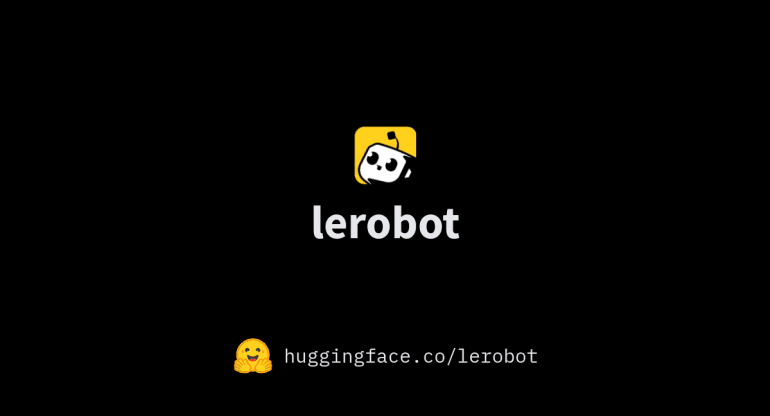- Hugging Face launches LeRobot, an open-source machine learning model tailored for real-world robotics applications.
- LeRobot offers a versatile library for data sharing, visualization, and advanced model training in PyTorch.
- Remi Cadene likens LeRobot’s significance to that of the Transformers library in NLP.
- Recent evaluations demonstrate LeRobot’s efficacy across diverse scenarios like AlohaTransferCube and PushT environments.
- Designed for various robotic hardware, LeRobot aims to improve versatility and scalability in robotics applications.
- LeRobot operates as an open-source project on GitHub, inviting global participation from developers, researchers, and enthusiasts.
- The release of LeRobot sparks enthusiasm within the AI and Robotics community, signaling significant progress in intelligent robotics systems.
- LeRobot’s curated datasets cover a wide range of robotics tasks, serving as valuable resources for AI model training and testing.
Main AI News:
In a significant move towards enhancing real-world robotics applications, Hugging Face has launched LeRobot, an innovative machine learning model tailored specifically for this domain. Serving as a comprehensive platform, LeRobot offers a versatile library that facilitates data sharing, visualization, and the training of advanced models.
LeRobot represents a concerted effort to democratize access to robotics technology. By furnishing models, datasets, and tools in PyTorch, it aims to democratize the field, enabling broader participation and leveraging the collective intelligence of the community.
Remi Cadene, formerly a staff scientist at Tesla, Inc., and now a key figure at Hugging Face, succinctly sums up LeRobot’s significance, likening it to the transformative impact the Transformers library had on natural language processing (NLP).
Streamlining project initiation, LeRobot provides pre-trained models and seamless integration with physics simulators. Recent evaluations, conducted on environments like AlohaTransferCube and PushT, underscore its efficacy, offering valuable insights into its performance across diverse scenarios.
Adaptable to a spectrum of robotic hardware, from educational arms to sophisticated humanoids, LeRobot stands as a beacon of versatility and scalability in robotics. Its open-source nature on GitHub fosters a collaborative ecosystem, inviting contributions from developers, researchers, and enthusiasts worldwide.
The unveiling of LeRobot has elicited a wave of enthusiasm within the AI and Robotics community, signaling a significant step forward in the advancement of intelligent robotics systems.
LeRobot’s curated datasets encompass a wide array of robotics tasks, ranging from object manipulation to mobility challenges. These datasets serve as invaluable resources for training and testing AI models in practical settings, covering scenarios like human-guided actions, scripted transfers, and arm movements.
While LeRobot holds immense promise for simplifying robotics development, there are considerations regarding documentation, hardware compatibility, and performance that need addressing. Nonetheless, its commitment to democratizing robotics technology positions it as a transformative force in the field.
Conclusion:
The introduction of Hugging Face’s LeRobot marks a pivotal moment in the robotics industry. Its open-source nature and comprehensive features promise to democratize access to advanced robotics technology, fostering collaboration and innovation. As LeRobot gains traction within the AI and Robotics community, it sets new standards for AI integration in practical applications, potentially reshaping the landscape of intelligent robotics systems.

